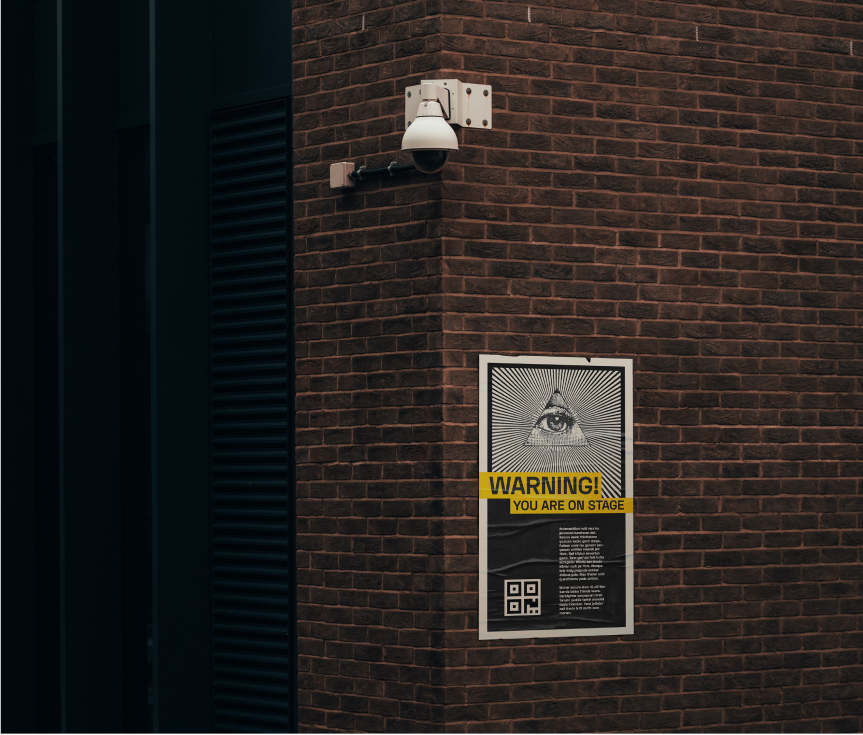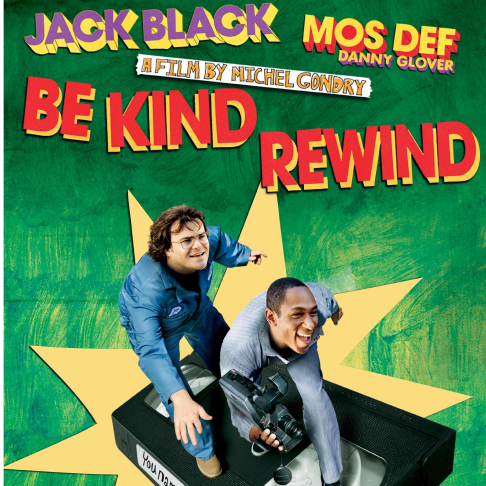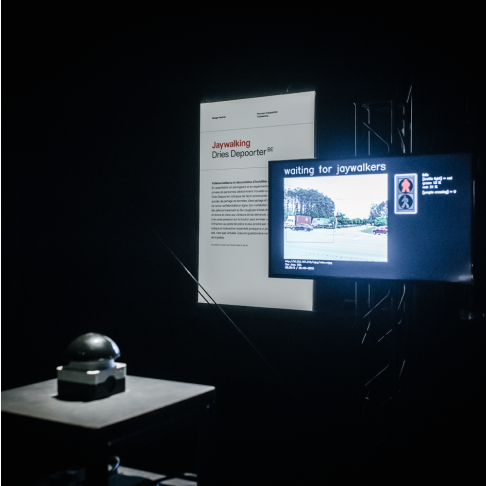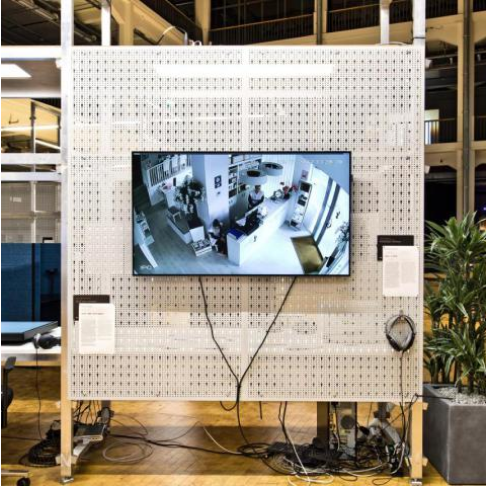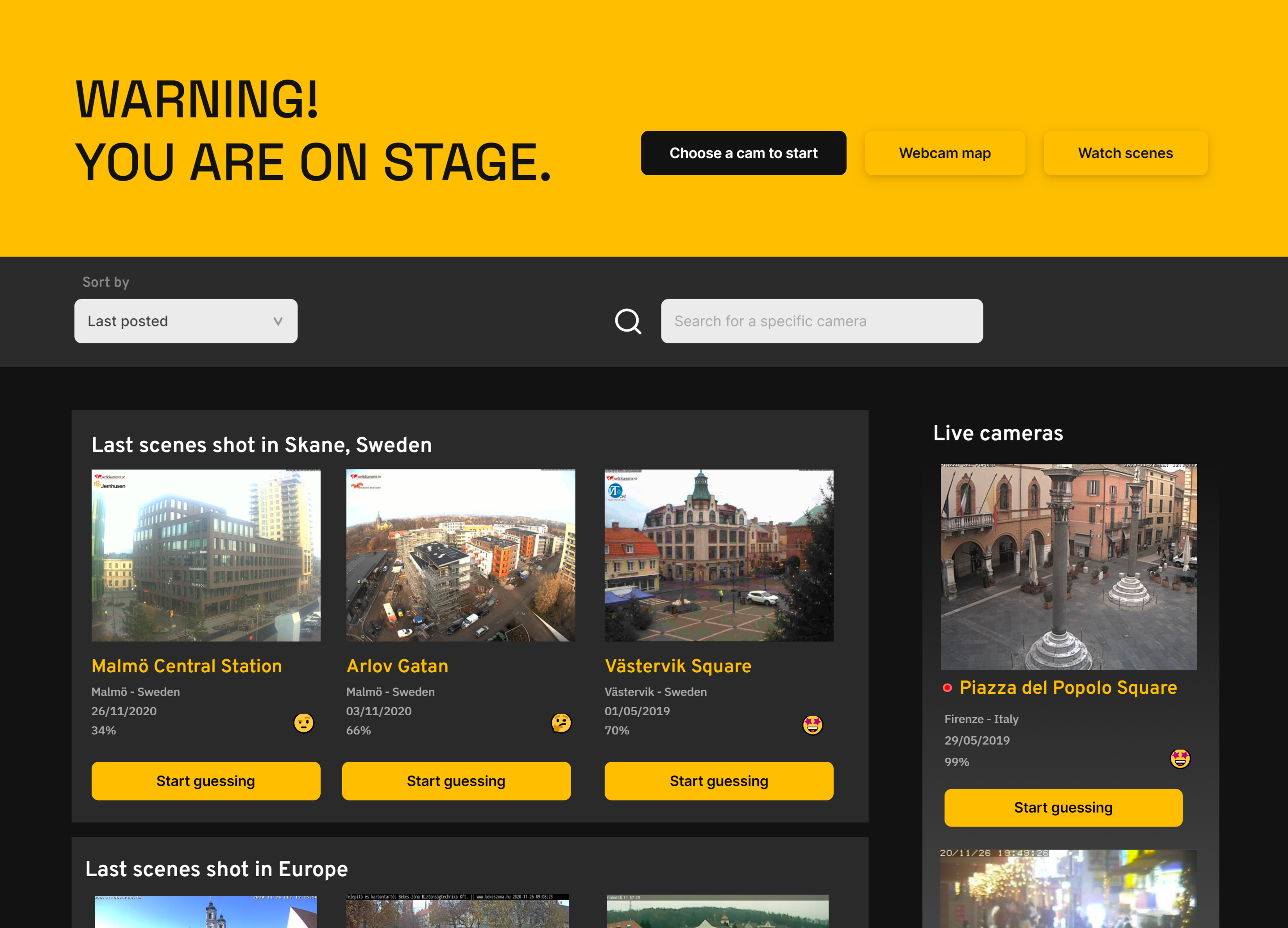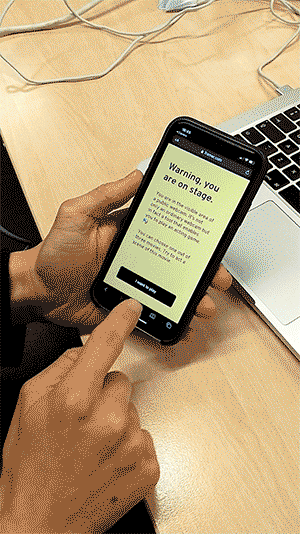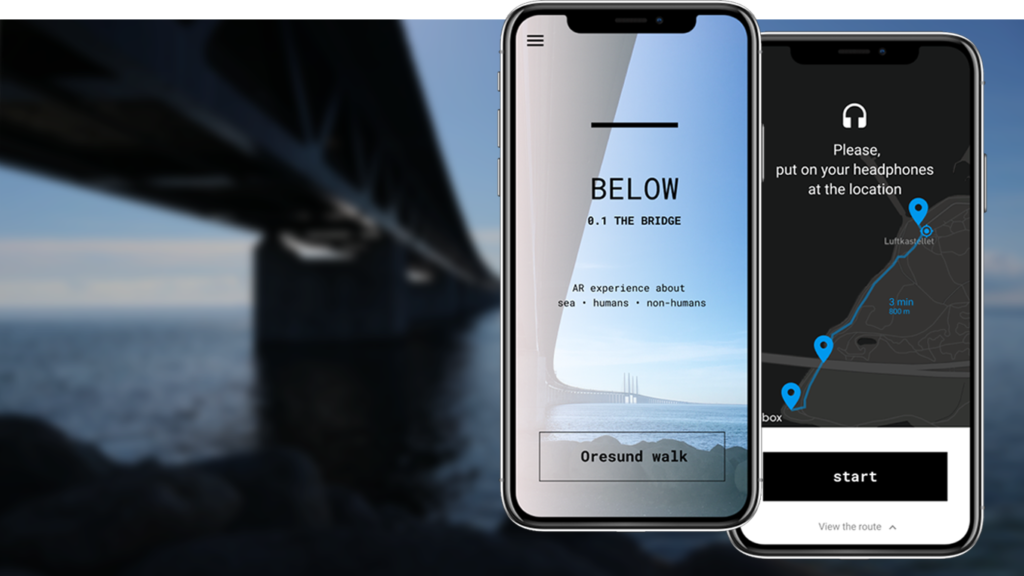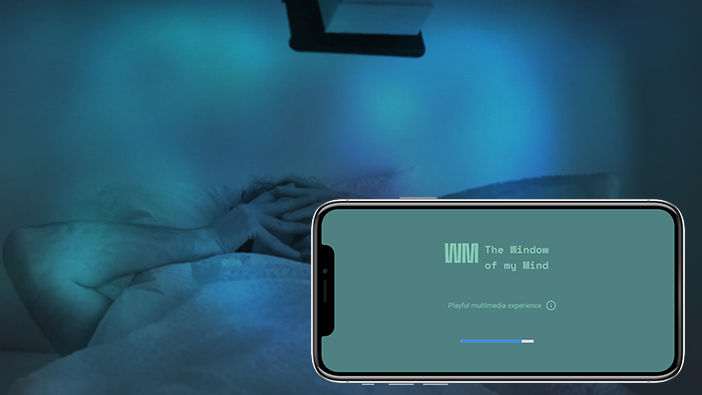Warning! You are on stage
A guessing game with public surveillance cameras.
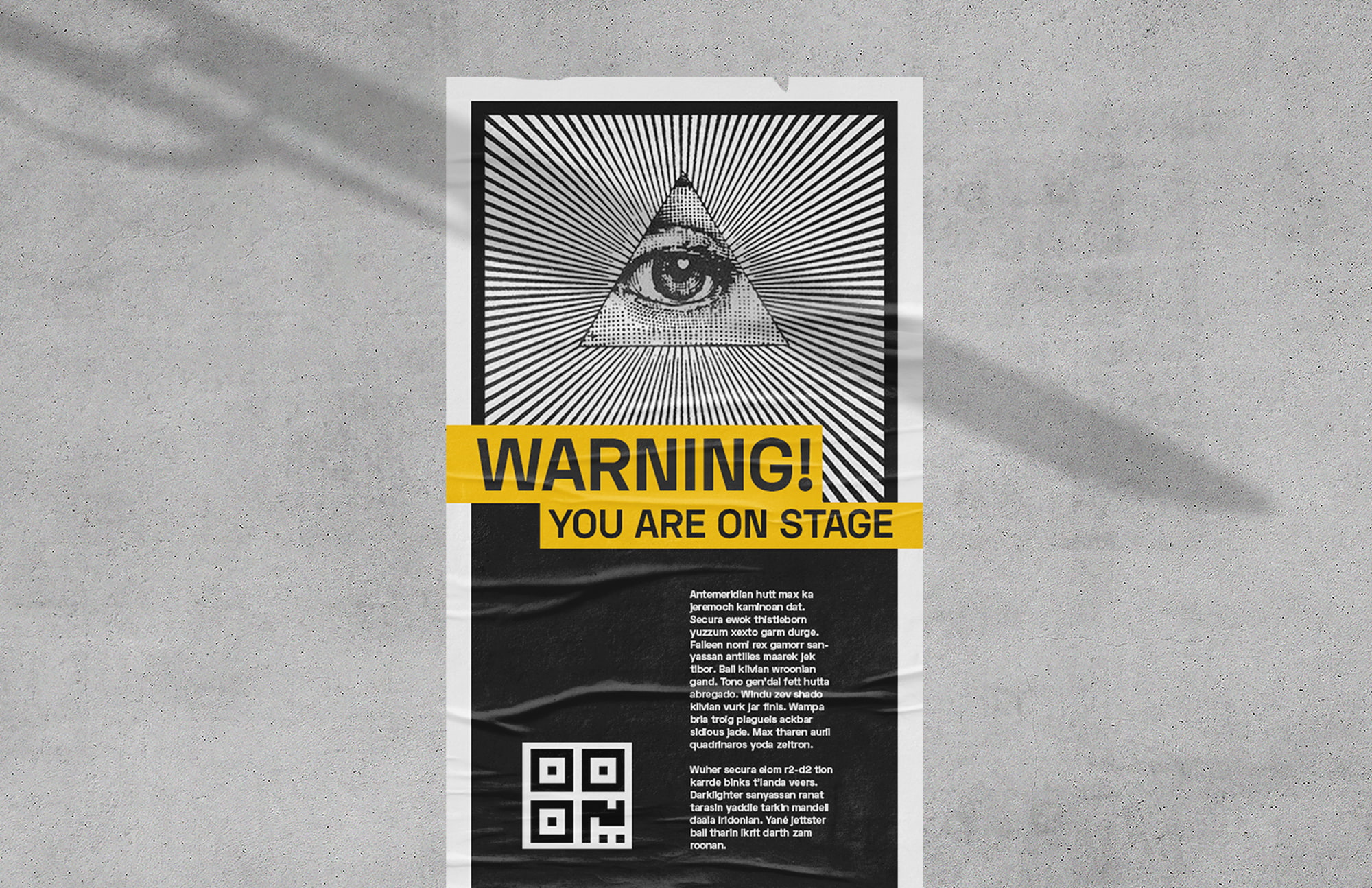
Time
1 week, 2020
Tools
Role
Collaboration
Overview
Acknowledging the widespread presence of surveillance cameras, this pervasive game turns the city into a performance area and invites citizens to reappropriate both physical and virtual public spaces. In this case we are playing with ambiguity — the controversial aspect of the theme of surveillance vs. a naïve game.
Background
“Playfulness reambiguates the world. Through the characteristics of play, it makes it less formalized, less explained, open to interpretation and wonder and manipulation. To be playful is to add ambiguity to the world and play with that ambiguity. ” — Miguel Sicart, Play Matters
Design process
01 Research and fieldwork
Research into the game mechanics and the context of CCTV. A 4-hour-walk to explore objects in the city.
02 Ideation and experiments
Concept development through performative exploration of CCTV, bodystorming and sketching.
03 Lo-fi playtesting
Testing three scenarios of the game.
04 Prototyping
Prototyping in Framer for web and mobile. Designing a poster.
IDEATION
Exploration of city cameras
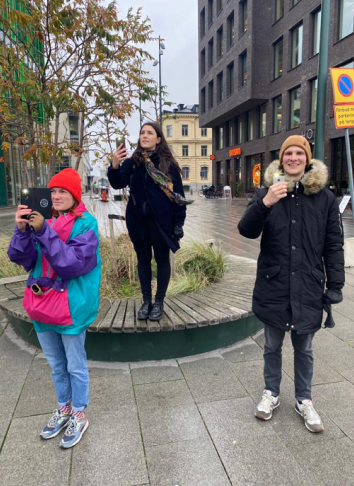

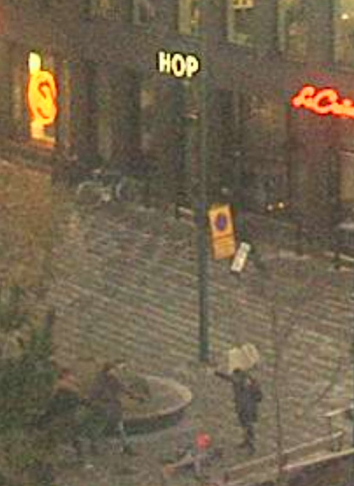
Developing core mechanics
- “Hunting the camera” — looking for the cameras hidden in the city.
- Performing a scene to be recognized by the remote players (mimicry*).
- Waiting for the picture to be taken: posing (illinx*).
- Guessing — the remote players try to recognize what the on-stage players intended to represent.
* Competition (agôn), chance (alea), simulation (mimicry), and vertigo (ilinix) — four types of play described by Roger Caillois in Man, Play and Games (1961).
Prototyping
We developed a kind of guessing game that is played all around the world with open-access public surveillance cameras where two types of players cooperate and compete against each other:
- the “on-stage players” perform an action in situ to be recorded by the camera.
- the “remote players” analyse the image feed produced by the on-stage players on a web platform.
Lo-fi playtests
To evaluate our initial assumptions in a real-life setting, we divided into two teams and play-tested different scenarios of the game. After trying several options, we developed the final scenario: the on-stage players choose and act out a movie scene, while the remote players guess the movie from 3 different variants.

Preparing props for remote players: pieces of paper with movie names.
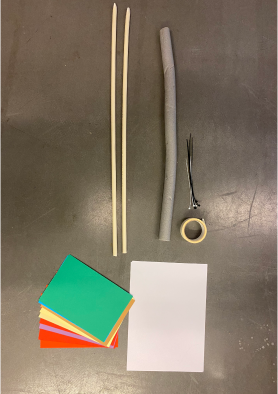
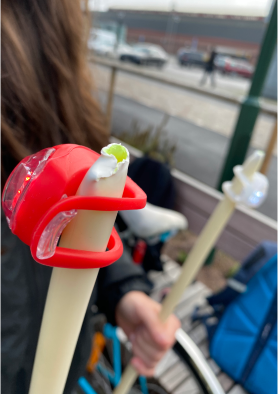
- the on-stage players enjoyed the creative part of the game when they had to improvise;
- the remote players found it hard but still funny since “you can’t really cheat”;
- non-players were intrigued, especially when the actors pretend to be dead.
Digital prototyping
We developed an interactive prototype of the website and a mobile app in Framer, because of its features such as the implementation of a timer. The web interface was mostly targeted at “remote players” and the mobile interface — at “on-stage players”.
Design Outcome
The final concept is an online platform for the game “Warning! You are on stage” — a guessing game that might be played around the world with open-access public surveillance cameras. Within the game, we appropriate both physical and virtual public spaces where two types of players cooperate to play the game.
The on-stage players perform an action in situ to be recorded by the camera. They decide on a movie for the remote players to guess and can arrive “on stage” with props they have prepared.
The remote players analyse the images produced by the on-stage players on a web platform and have to guess the movie from 3 different variants.
Demo of the website interface.
